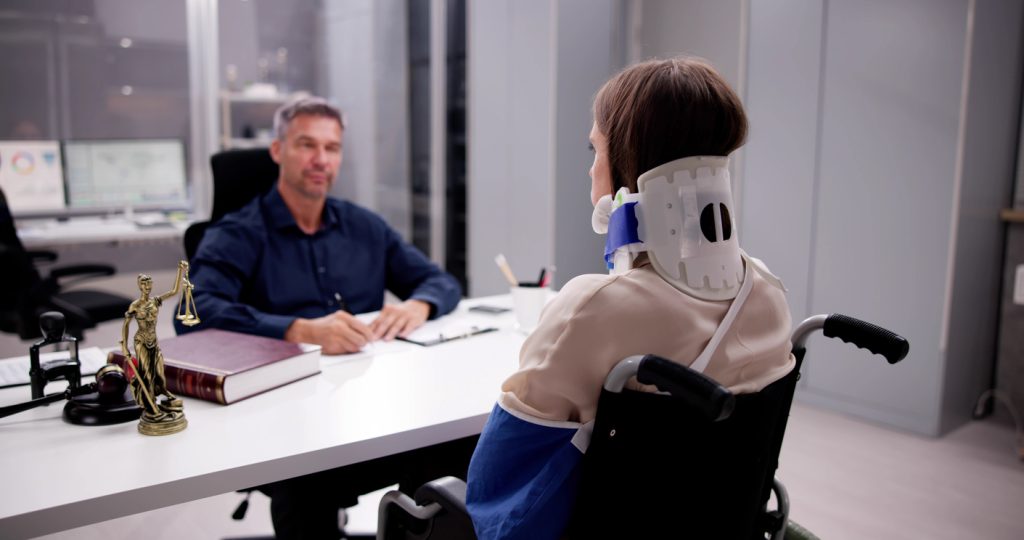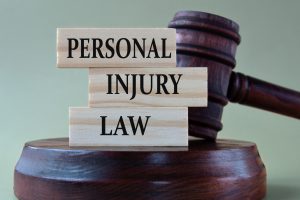Empowering Accident Victims: Insights into Personal Injury Law
Jonathan J. Russell, a seasoned personal injury attorney, shares his expertise on the intricacies of negligence law and the advocacy needed to support accident victims. With years of experience in litigation across Pennsylvania and New Jersey, Jonathan emphasizes the importance of not only understanding legal principles but also advocating for clients who refuse to let their injuries define them. In this insightful discussion, he explores key aspects of personal injury claims, the role of insurance companies, and essential steps for protecting one’s legal rights after an accident.

Jonathan J. Russell
Drake, Hileman & Davis, PC - Pennsylvania
What does a personal injury attorney do in negligence cases, and how do they advocate for accident victims?
Advocacy is the art of persuasion. As a trial attorney, my job is to find the best way for my clients to tell their stories regarding all of their losses and harms. I don’t represent victims; I represent overcomers. My clients don’t allow their injuries to define them; they want a path forward, and my job is to help them find that way. From the opening of the initial claim through the final verdict, we handle all the stress associated with moving a claim to a successful conclusion. An effective advocate will know the right questions to ask, as well as what evidence is needed in order to succeed.
How is fault established in Pennsylvania personal injury cases, and what key evidence is needed to prove negligence?
Negligence has been defined as the failure to exercise the degree of care that a reasonable person would demonstrate in the same or a similar situation. To be successful in proving a negligence claim, you must show four elements: (1) that a duty existed; (2) that there was a breach of that duty; (3) that damages were sustained; and finally, (4) causation—meaning that it was the breach of the duty that caused the harm.
Frequently at trial, we refer to two parts of a negligence claim: Liability and Damages. Liability pertains to the duty and the breach, or what might be considered “fault.” Damages relate to causation and the harm sustained. In some cases, the defendant will acknowledge a particular standard or “rule” that governs the situation and may even stipulate to the fact that the rule was violated. In other cases, experts will be needed to establish the standard of care and then show how the defendant’s conduct fell below that standard.
What is Pennsylvania's modified comparative negligence rule, and how does it affect a client's chances of recovering damages in personal injury cases?
In Pennsylvania, the fact that someone who was injured may also have contributed to their own injury is not a complete bar to recovery. Frequently, we see this in pedestrian claims, where there is a corresponding duty placed on the plaintiff to exercise reasonable care when encountering a property defect. If a plaintiff is found to be 10% negligent in bringing about the harm sustained, then any monetary award would be reduced by 10%. This reduction would continue up to a maximum of 50%. However, if the plaintiff is more than 50% at fault, then the plaintiff cannot recover at all, even though the defendant may have been as much as 49% at fault in causing the harm.
What are the essential steps to take after being injured in an accident to protect your legal rights and strengthen a personal injury claim?
If you are injured, you need to obtain medical treatment as soon as practically possible. Be sure to detail to your medical providers all of your injuries. As to liability or fault, one of the most important steps you can take to strengthen your claim is to ensure that the claim is properly reported. In an automobile collision, this would mean calling the police. The police will write a report and may take photographs. However, do not rely solely on the police investigation. If possible, take photos of the scene and secure the names and contact information of any witnesses.
In premises liability cases, it is important to file a report with the property or business owner, in addition to taking photographs and identifying witnesses. Frequently, video (either private video surveillance or in-store security) will support a claim, but such video does not always capture the location of the injury. In claims where no report was made, no photos or video were taken, and no witnesses were identified, liability or fault will be actively disputed. These cases can be very challenging.
What types of damages can you recover in a Pennsylvania personal injury lawsuit, and how do they impact your case?
Damages in a personal injury lawsuit typically fall into three categories: (1) economic damages; (2) non-economic damages; and (3) punitive damages. Economic damages are those damages that have a monetary value assigned to them, such as medical expenses, wage losses, and property damage. Non-economic damages include physical and mental pain and suffering, loss of enjoyment of life’s pleasures, embarrassment, humiliation, scarring, and loss of consortium. These first two types of damages are awarded in an attempt to compensate the injured party for all the losses and harms sustained. While non-economic damages can be difficult to value and money is an imperfect remedy, a monetary award is still better than no remedy at all.
However, punitive damages are different. Punitive damages are meant to punish the wrongdoing for behavior that goes beyond ordinary negligence and crosses into the realm of recklessness or grossly negligent conduct. This includes conduct such as driving while under the influence of alcohol or drugs, using a cell phone while driving, or actively removing or disabling safety devices. In such cases, punitive damages take into consideration the worth of the defendant and are awarded as a means of deterring both the defendant and others from bad conduct in the future.
How do insurance companies usually handle personal injury claims in Pennsylvania, and why is having an experienced lawyer important in negotiations?
From my experience, the insurance company will not voluntarily pay full and fair compensation on a claim unless they have to do so. Essentially, the carrier wants to offer the least amount of money it will take to get the claim settled. It’s not personal; rather, it’s just that insurance companies view the process as transactional.
An experienced trial attorney will know what the insurance company is looking for in evaluating a claim. The experienced lawyer will understand the “value drivers” on a claim and how to negotiate a settlement that is within an acceptable “range of reasonableness” relative to what verdict might be expected in your jurisdiction at trial.
What are the top mistakes to avoid when filing a personal injury claim, and how can you strengthen your case?
Avoid inconsistencies. Frequently, we review medical records where the records do not accurately reflect the fullness of what the client was experiencing. Sometimes, patients tend to undermine their case inadvertently with a casual comment or response, which they don’t realize will be documented in his or her medical record. When a doctor asks, “How are you doing?” that is a different question than if someone on the street asks the same question. When communicating with a doctor, you want to be honest and complete about how you are feeling and what is bothering you. Sometimes a client may feel great on one day but then lousy the next. It is also important not to overgeneralize your condition with qualifiers such as “always” or “never” if that is not absolutely the case. In our everyday conversations, we are typically not held to the same level of verbal precision that is demanded in presenting a claim for damages.
What recent changes have shaped Pennsylvania's personal injury laws, especially in negligence cases, and what trends should injury victims expect?
Recent court decisions have affected our understanding of Pennsylvania law involving insurance coverage in the context of automobile collisions. I have had several cases recently where the insurance carrier told my client they had “x” dollars in coverage, only to discover that the carrier was wrong. Knowing the right questions to ask and what documents to demand, in light of these recent court decisions, can make a huge difference. In the cases I am thinking of, we were able to establish that coverage was actually two to three times greater than what the insurance company had initially claimed. In this regard, hiring an experienced trial attorney to handle your claim will ensure that you are treated fairly in recovering all that you deserve.
ABOUT JONATHAN: Jonathan J. Russell is a dedicated litigator with extensive experience advocating for clients throughout the litigation process, achieving successful verdicts before judges, juries, and arbitration panels across multiple counties in Pennsylvania and New Jersey. Licensed to practice in both states, he is also admitted to Federal Court and the U.S. Supreme Court.
Recognized as a “Pennsylvania SuperLawyer Rising Star” in 2006 and a “SuperLawyer” from 2011 onward, Jonathan is a member of several legal associations, including the Pennsylvania Association for Justice and the Million Dollar Advocates Forum, which honors the top 1% of attorneys in the U.S.
Beyond litigation, he has led public seminars on estate planning and has actively served on various non-profit boards. Since joining his firm in 1993, becoming a shareholder in 1998, Jonathan has built a distinguished career following his law degree from Villanova University in 1992 and his Bachelor's from Eastern Nazarene College in 1989.
Contact:
Jonathan J. Russell
Drake, Hileman & Davis, PC
P.O. Box 1306
Doylestown, Pennsylvania 18901
Phone: 215-348-2088
jrussell@dhdlaw.com
www.dhdlaw.com






















